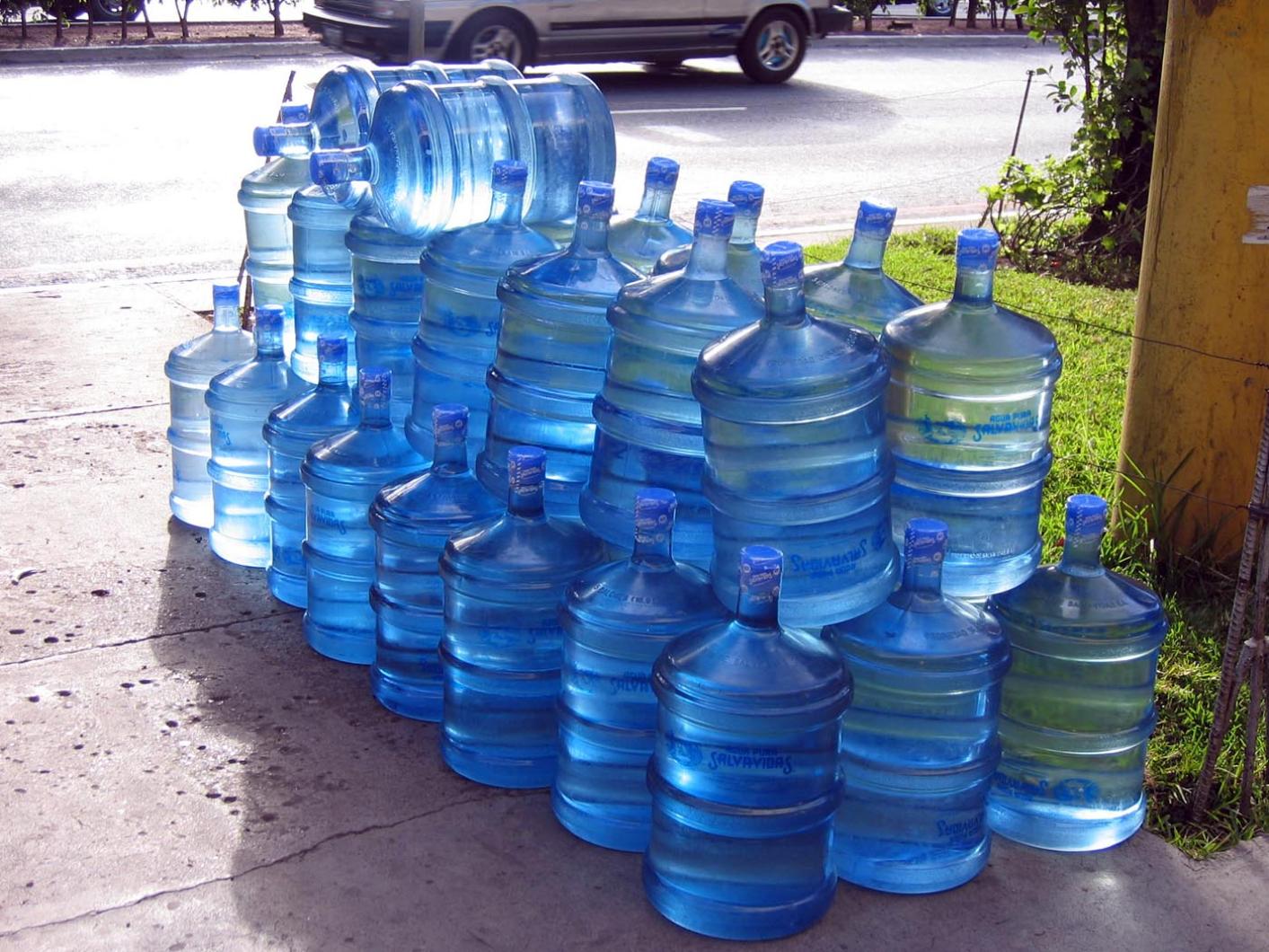If you had to pick the worst example of marketing defeating morality, it would be hard to go past the bottled water industry.
People spend some $7 billion buying the product each year. According to the Beverage Marketing Corporation, Americans consumed some 31.2 billion liters of it in 2006, mostly packaged in plastic.
By the calculations of the environmental organization the Pacific Institute, that packaging alone consumed 17 million barrels of oil in 2006, resulting in the release of 2.5 million tons of carbon dioxide into the atmosphere, not including the fuel burnt in transporting the stuff.
Bottled water costs about a thousand times as much as the perfectly good water which comes out of our taps, and about three liters is used for every one which makes it to the store shelves.
Bottled water is an offense against energy independence, the global environment and personal finances. But, bad as it is, it is only a part of much bigger and more insidious trend — the worldwide move by major corporations to privatize what was once seen as a common good, plain old H2O.
Those companies have realized what most people, particularly in this country, blessed as it is by relatively plentiful supply, have not: fresh water is now a scarce resource.
Already the provision of water is the third biggest global industry, behind oil and power generation. It’s a $400 billion industry. Water is well on the way to becoming the most precious commodity in the world.
But a new documentary, screening on the Vineyard this weekend as part of the Martha’s Vineyard International Film Festival, brings that realization crashing home. See Flow: For Love Of Water, and you may never drink bottled water again. Nor, in the hope of those who made it, will you view the actions of some of our largest corporations and institutions, from Nestle and Coca Cola to the World Bank in the same benign way.
For what the movie depicts is an enormous global tragedy, overlain and in some cases worsened by corporate greed.
Flow is largely the work of Irena Salina, a French-born documentary maker, resident in New York for the past 14 years. Yesterday a somewhat frazzled Ms. Salina (she was running behind time, having missed her train; not all movie folk travel by limo) talked about how she fell into making the film.
“The whole thing started in 2001. I happened to hear about Robert Kennedy Jr.’s work with River Keeper on the Hudson River. I just heard him on the radio and at the time he was fighting a case about some chemicals that had been dumped in the Hudson, and was fighting that.
“That percolated into something else, when someone gave me an article from The Nation, titled Who Owns Water, about whether it was the new oil.
“That just blew my mind. From then on I just got more and more passionate about the subject,” she said.
She got a little money and spent the next five years investigating water problems around the world. It was a shoestring operation. At one point she had to cash in a colleague’s frequent flyer points; the money nearly ran out again during the editing process at the start of this year.
But what she found is indeed mind-blowing. First off, there is the straightforward matter of demand. It has grown to the point where many of the great rivers of the world — among them Africa’s Nile, China’s Yellow River, the Colorado in the USA, no longer even reach the sea. All their water is sucked out first.
In an effort to supply more water, huge numbers of dams have been built, most of them by the World Bank. In the 20th century somewhere between 40 and 80 million people were displaced and in many cases dispossessed.
But dams interrupt the natural water cycle. Organic matter builds up behind them, rots and releases huge quantities of methane, a greenhouse gas far more powerful than carbon dioxide.
Yet despite these efforts, many people still go without clean water. Each day, according to the film, something like 30,000 people, disproportionately young children, die from water-borne disease.
Her interviews show how misplaced much of the effort is. The World Bank and its associated entity, the World Water Council, keep delivering macro-projects when what communities in poor countries really need is micro-projects — local level solutions.
The suggestion is that these international efforts to provide clean water to the destitute have been hijacked by vested interests. In places from Bolivia — which was forced by the World Bank to privatize if it was to get development money from the World Bank — to India — where a giant corporation is planning to sell water to people at 10 times its previous cost — she finds compelling evidence of the malign influence of the corporate sector.
No case study is more powerful than the one from South Africa, where private investment did indeed bring piped water to poor townspeople. But they could only access it by the use of pre-paid water cards, at higher cost than many could afford. Part of the contract was that previously free taps were removed, so the poor were forced to free but unsafe alternatives.
The reaction to the film, Ms. Salina said, has been polarized, between those who applauded its environmental and humanitarian message and those who decried its anti-corporate message.
But she does not care. “Controversy is great, as long as it makes people talk,” she said.
This a deeply unsettling film will screen at the Capawock on Sunday at noon at the Capawock. It’s well worth seeing. Take some tap water with you.




Comments
Comment policy »